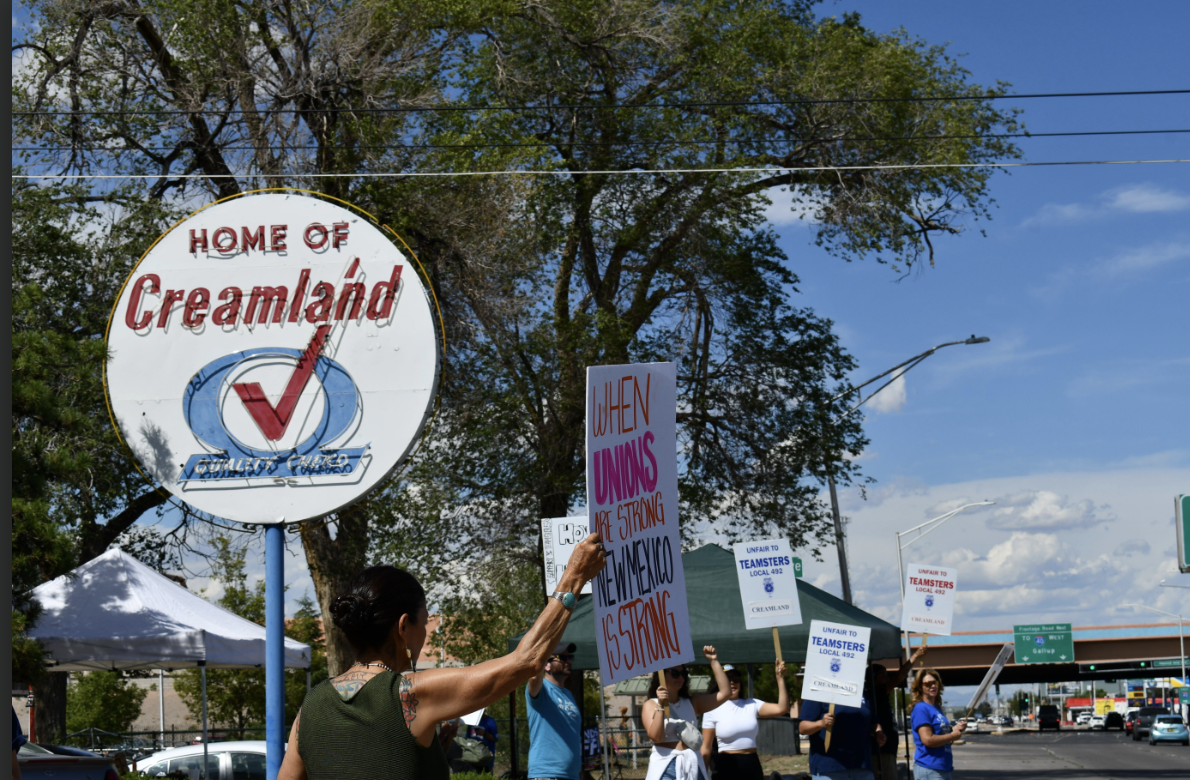
- Details
- By Native News Online Staff
On Tuesday, Deb Haaland (Laguna Pueblo), a candidate for governor of New Mexico, joined striking workers at the Creamland Dairy plant in Albuquerque. These workers, members of Teamsters Local 492, are demanding improved wages, benefits, and working conditions.
“New Mexico’s workers are the backbone of our economy and they should be paid fairly. I stand with unions because they build up the middle class and advocate for the healthcare and benefits that people rely on. As Donald Trump continues to weaken the rights of unions and attack our healthcare, unions will be critical to providing support of their members. I am proud to stand with Creamland Dairy workers,” Deb Haaland said.
Throughout her career, Haaland has consistently supported organized labor, recognizing that strong unions help working families afford basic needs, secure healthcare, and achieve a stable retirement. During her time in Congress, she backed legislation to raise the minimum wage and expand protections for workers seeking to unionize. As Secretary of the Interior, she oversaw substantial investments across the U.S. that generated good-paying, union jobs.
More Stories Like This
Native News Weekly (August 25, 2024): D.C. BriefsUS Presidents in Their Own Words Concerning American Indians
Native News Weekly (December 21, 2025): D.C. Briefs
Native America Celebrates the Winter Solstice
Tlingit & Haida Launch New Foundation to Support Education, Wellness
Help us defend tribal sovereignty.
At Native News Online, our mission is rooted in telling the stories that strengthen sovereignty and uplift Indigenous voices — not just at year’s end, but every single day.
Because of your generosity last year, we were able to keep our reporters on the ground in tribal communities, at national gatherings and in the halls of Congress — covering the issues that matter most to Indian Country: sovereignty, culture, education, health and economic opportunity.
That support sustained us through a tough year in 2025. Now, as we look to the year ahead, we need your help right now to ensure warrior journalism remains strong — reporting that defends tribal sovereignty, amplifies Native truth, and holds power accountable.
 The stakes couldn't be higher. Your support keeps Native voices heard, Native stories told and Native sovereignty defended.
The stakes couldn't be higher. Your support keeps Native voices heard, Native stories told and Native sovereignty defended.
Stand with Warrior Journalism today.
Levi Rickert (Potawatomi), Editor & Publisher

